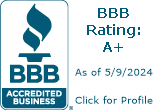Louisiana Sales Tax Exemptions
What is Exempt From Sales Tax In Louisiana?
Beginning on April 1, 2016 the state of Louisiana levies a 5% state sales tax on the retail sale, lease or rental of most goods and some services. Local jurisdictions impose additional sales taxes up to 7%. Prior to the 1% increase in the state rate which took place on April 1, 2016 the state rate was 4%. The current range of total sales tax rates within the state of Louisiana is between 5% and 12%.
Use tax is also collected on the consumption, use, or storage of goods in Louisiana if sales tax was not paid on the purchase of the goods. The use tax rate of 8%, which includes 4% to be distributed by the Department of Revenue to local governments. The use tax rate is 8% regardless of whether the actual combined state and local rate in your area is equal to, higher than, or lower than 8%. The use tax is paid in lieu of the actual local rate in effect. Returns are to be filed on or before the 20th day of the month following the month in which the purchases were made. For example, purchases made in the month of January should be reported to the state of Louisiana on or before February 20th.
Need more information?
Louisiana Sales Tax Exemptions for the Healthcare Industry
The healthcare industry, including hospitals, outpatient surgical center as well as nursing homes, have a number of state sales and use tax exemptions for which they are eligible. Additionally, some local parishes offer reduced rates or complete exemptions on some purchases. Our sales tax consultants have had the most success helping clients in the healthcare industry with two main categories of purchases: prescription-required, single-use medical devices; and food purchases for their facilities’ cafeterias. For more information about this Louisiana sales tax exemption, please see the Research Bulletin's below written by our sales tax consultants.
For more information on Louisiana sales tax exemptions please visit the sites below.
Louisiana Sales Tax Exemptions Information
Louisiana Sales Tax Research Bulletins
Sales Tax Compliance FAQs
Sales tax compliance can be intimidating, but it doesn't have to be!
Find the sales tax exemptions for your state
Select any state in the map below to view all relevant sales and use tax information available for that state.




